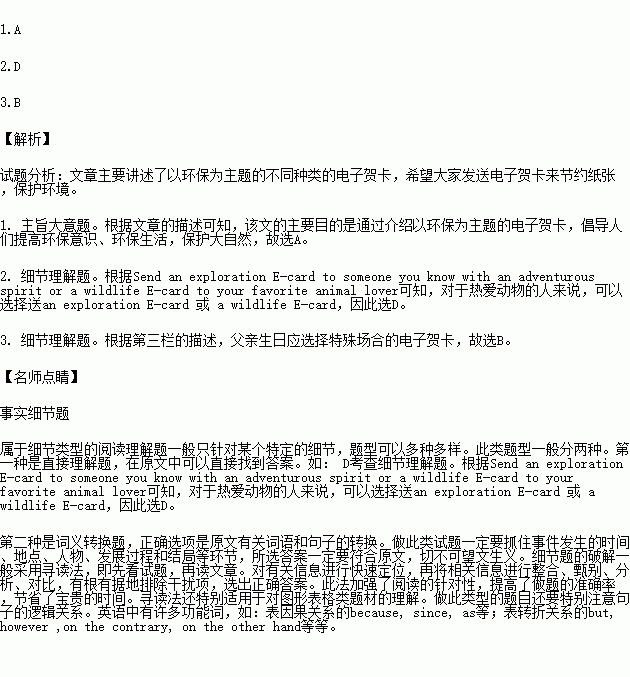题目内容
When you choose to send one of our free E-cards, you save paper and give friends and family the opportunity to enjoy the wonder of nature.
Celebrate the beauty of our natural world and send an E-card to friends and family who care about protecting our planet. Feel free to set your E-card to arrive on any day you please.

Looking for something to do besides sending an E-card?
Check out our Everyday Environmentalist page with eco-tips on how to live greener, and become an e-member of our free global online community or calculate(计算) your carbon footprint. You can even upload your photos to our site and your photo may be featured in an E-card next year!
1.For what purpose is the passage written?
A. Offering free E-cards to call on planet protection.
B. Celebrating the beauty of our natural world.
C. Introducing various cheap and wonderful E-cards.
D. Advertising the E-cards for some commercial profit.
2.To your little sister who is an animal lover, you’d better send her ________.
A. a special occasion E-card
B. a habitat E-card
C. a seasonal E-card
D. a wildlife E-card
3.For your father’s birthday, you’d better choose an E-card from column ________.
A. Seasonal E-card
B. Special Occasion E-card
C. Habitat E-card
D. Best of Nature E-card D

